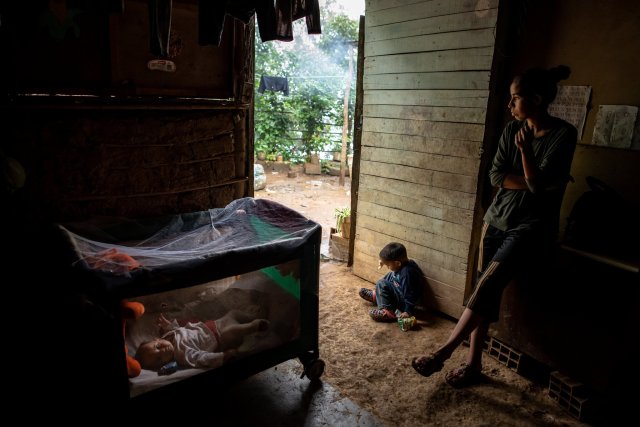
Affordable birth control has disappeared, pushing many women into unplanned pregnancies at a time when they can barely feed the children they already have.
By Julie Turkewitz and Isayen Herrera/ The New York Times
The moment Johanna Guzmán, 25, discovered she was going to have her sixth child she began to sob, crushed by the idea of bringing another life into a nation in such decay.
For years, as Venezuela spiraled deeper into an economic crisis, she and her husband had scoured clinics and pharmacies for any kind of birth control, usually in vain. They had a third child. A fourth. A fifth.
Already, Ms. Guzmán was cooking meager dinners over a wood fire, washing clothing without soap, teaching lessons without paper. Already, she was stalked by a fear that she could not feed them all.
And now, another child?
“I felt like I was drowning,” she said.
As Venezuela enters its eighth year of economic crisis, a deeply personal drama is playing out inside the home: Millions of women are no longer able to find or afford birth control, pushing many into unplanned pregnancies at a time when they can barely feed the children they already have.
Around Caracas, the capital, a pack of three condoms costs $4.40 — three times Venezuela’s monthly minimum wage of $1.50.
Birth control pills cost more than twice as much, roughly $11 a month, while an IUD, or intrauterine device, can cost more than $40 — more than 25 times the minimum wage. And that does not include a doctor’s fee to have the device put in.
With the cost of contraception so far out of reach, women are increasingly resorting to abortions, which are illegal and, in the worst cases, can cost them their lives.
As Venezuela enters its eighth year of economic crisis, a deeply personal drama is playing out inside the home: Millions of women are no longer able to find or afford birth control, pushing many into unplanned pregnancies at a time when they can barely feed the children they already have.
Around Caracas, the capital, a pack of three condoms costs $4.40 — three times Venezuela’s monthly minimum wage of $1.50.
Birth control pills cost more than twice as much, roughly $11 a month, while an IUD, or intrauterine device, can cost more than $40 — more than 25 times the minimum wage. And that does not include a doctor’s fee to have the device put in.
With the cost of contraception so far out of reach, women are increasingly resorting to abortions, which are illegal and, in the worst cases, can cost them their lives.
The result has been life-changing for women, who shoulder the vast majority of child care responsibilities, just as the crisis has greatly expanded the challenge of being a parent.
Many women who grew up believing that Mr. Chávez’s political movement, known as Chavismo, would springboard them out of poverty, offering them education and career opportunities, now face the task of raising four, six or 10 children at a time when the basics of family care — food, soap, diapers — arrive intermittently or not at all.
Anitza Freitez, a demographer with the Universidad Católica Andrés Bello in Caracas, said this dynamic could shape the country for decades, creating “a vicious circle of poverty.”
As Venezuela’s maternity wards fell apart, maternal deaths surged 65 percent between 2015 and 2016, according to the country’s health ministry.
And then the government stopped releasing data.
Fexsibel Bracho was 24 and the mother of three when she sought out a clandestine clinic to end a pregnancy in January. The procedure, performed with a hook, punctured her uterus. She died of a hemorrhage on Feb. 2.
“She didn’t have money for birth control,” said her mother, Lucibel Marcano, 51, who cared for Fexsibel in her final hours, watching her daughter’s face lose color.
To continue reading click here.